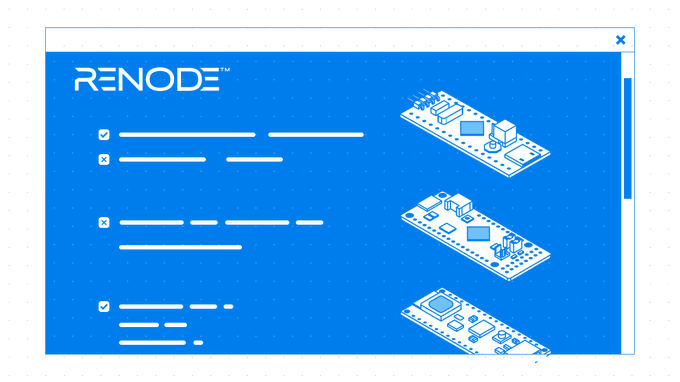With the ever-growing power and capabilities (and variety!) of microcontrollers, TinyML is becoming practical, in turn pushing complexity of MCU software stacks. To address that complexity engineers need versatile and portable tools and workflows, usable across vendors, architectures and use cases. The combination of the Zephyr RTOS, the Renode simulation framework and TensorFlow Lite for Microcontrollers adds up to form a bulletproof open source ecosystem for building advanced ML applications at the edge.
The Zephyr Project provides developers and product makers with a modern, full-featured, customizable open source RTOS for a broad range of resource constrained devices.
These edge, often battery-powered devices can now run TinyML workloads thanks to the TensorFlow framework. However, testing software at scale on many small and embedded devices can be a challenge.

Renode, Antmicro’s open source simulation framework, enables bringing these two worlds together. Allowing for hardware-less, Continuous Integration-driven workflows on embedded devices and IoT systems, Renode helped us run TensorFlow on Zephyr-supported hardware.
In a recent collaboration with Google, Antmicro brought Renode’s capability of full SoC simulation to the TensorFlow Lite CI and enabled a variety of demos and flows to be run by users without access to hardware. Renode can test Zephyr + TF Lite Micro integration using the complete flow, as perceived by users – providing data to sensors connected to different busses and observing the results on output interfaces, using the same binaries they’d run on hardware. This paved the way for further porting of TFLite to new platforms, adding a powerful new use case to the Zephyr portfolio and becoming a ready-to-use base for both internal and academic research.
Antmicro’s Peter Zierhoffer recently gave a presentation about “Using CI-based workflow with Renode in bringing TensorFlow Lite to Zephyr” at the first-ever Zephyr Developer Summit, which took place virtually on June 8-10. The presentation covered the process of the integration, describe the dedicated testing infrastructure and showcase practical application of the project. Watch the video:
If you have questions, please join us on the Zephyr Slack to chat with any of our Zephyr ambassadors, community leaders or members of the Technical Steering Committee or the Governing Board.